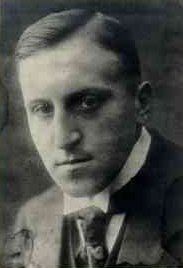Why was Carl von Ossietzky Awarded the Nobel Prize for Peace in 1935?
Exploring the Significant Reasons Behind Carl von Ossietzky's Nobel Peace Prize Recognition
Carl von Ossietzky’s Nobel Peace Prize: A Triumph of Defiance Against Militarism
In 1935, the Nobel Peace Prize was awarded to the German journalist, pacifist, and political dissident Carl von Ossietzky, recognizing his unyielding commitment to exposing the dangers of militarism and advocating for disarmament during a critical juncture in world history. Ossietzky’s courageous actions and unwavering dedication to peace made him a symbol of resistance against authoritarianism and a deserving recipient of the prestigious award.
 A Staunch Advocate for Peace
A Staunch Advocate for Peace
Born in Hamburg, Germany, in 1889, Carl von Ossietzky’s early life experiences, including his service as a soldier during World War I, deeply influenced his pacifist convictions. As a journalist and editor, Ossietzky used his platform to vehemently oppose the militarization of Germany and to expose the covert rearmament efforts that were in violation of the Treaty of Versailles. His writings revealed the stark realities of a nation rearming itself while disregarding international agreements, and he tirelessly warned against the impending threat to global peace.
Exposing the Secret Military Buildup
Ossietzky’s pivotal moment came in 1931 when he published an explosive article in the German pacifist magazine “Die Weltbühne.” In this groundbreaking piece, he unveiled the existence of the clandestine German military organization known as the “Reichswehr Ministry,” which was responsible for systematically bypassing disarmament provisions imposed by the Treaty of Versailles. Ossietzky’s exposé not only drew international attention but also triggered outrage within Germany, leading to his arrest and subsequent imprisonment by the Nazi regime.
Defiance in the Face of Tyranny
Even as he endured imprisonment and harassment, Ossietzky’s commitment to his convictions remained unshaken. His refusal to compromise his principles, even under extreme duress, exemplified the power of individual resistance against a repressive regime. Ossietzky’s plight garnered international sympathy and amplified the global outcry against the rising tide of fascism and militarism.
Nobel Peace Prize Recognition
In 1935, the Norwegian Nobel Committee awarded Carl von Ossietzky the Nobel Peace Prize for his courageous stance against militarism and his efforts to promote disarmament. The committee’s decision to honor Ossietzky was a resounding endorsement of his dedication to peace, his fearless journalism, and his unwavering commitment to shedding light on the dangerous consequences of unchecked militarism and aggression.
Legacy and Impact
Carl von Ossietzky’s Nobel Peace Prize not only recognized his individual bravery but also symbolized the broader struggle against the forces of totalitarianism and war. While Ossietzky’s health had deteriorated significantly during his imprisonment, the recognition bestowed upon him by the Nobel Committee provided a glimmer of hope for all those who believed in the power of peaceful resistance. Ossietzky’s legacy continues to inspire generations to stand up against oppression, to defend freedom of expression, and to work tirelessly towards a world where dialogue and cooperation triumph over militarism and conflict.
Carl von Ossietzky’s Nobel Peace Prize in 1935 stands as a testament to his unflinching courage, his commitment to peace, and his unyielding resistance against the forces of militarism and authoritarianism. His dedication to truth and his defiance in the face of tyranny made him an icon of peaceful resistance, whose legacy continues to inspire individuals and movements around the world striving for a more just, peaceful, and compassionate global community.




